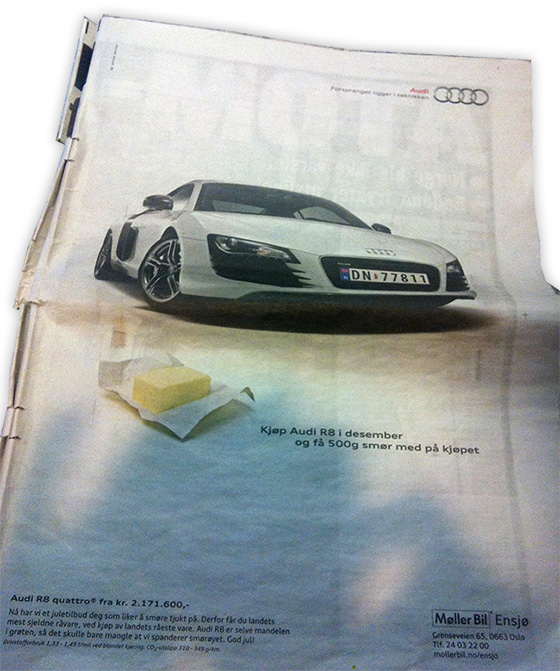My Swedish colleague, Dr Andreas Eenfeldt, has been doing a lot to promote LCHF both in Sweden and abroad. I have spent time with him at the scientific meetings we both attend. He wrote about my research and My Big Fat Diet in his recent book which has become a best-seller in Sweden and which is being translated into other languages. Unfortunately, I don’t think it is available in English, yet. He also did a video interview with me which is posted on his blog and is also available on YouTube (http://www.youtube.com/watch?v=U4y8-1J_Jqw).
A few years back, I was at a scientific conference on pre-diabetes and metabolic syndrome in Barcelona. As usual in these meetings, everything was oriented towards pharmaceutical interventions with little mention of diet. In fact, the only time diet was referenced in virtually all sessions was when people would say, almost robotically: “caused by a high fat diet”. The prevailing meme was that obesity, pre-diabetes, metabolic syndrome and type 2 diabetes were all “caused by a high fat diet”. Finally, at the end of the meeting there was a panel session on diet which I attended, of course. I blogged about this earlier, but to recap, a couple of very prominent nutritional researchers gave talks about the benefits of higher protein diets while disparaging low-carb diets even though the higher protein was achieved by reducing carbs. When it came time for questions I was first to the microphone and suggested to them that the metabolic benefits they has attributed to high protein were more likely due to the fact that they had also reduced carbohydrates and that they should consider going lower on the carbs to achieve even greater benefits. Well, didn’t I throw the cat amongst the pigeons. First of all, there was a ripple of applause in the audience after my comment. Then one of the prominent researchers (from Harvard!) responded with the most venal diatribe against low-carb diets that you can imagine (I found out later that he was actually conducting a trial comparing low-carb vs conventional diet at the time). It was rather remarkable because the level of debate in these meetings is usually pretty good. Perhaps the applause had motivated him to want to nip this insurrection in the bud. Whatever his reasons, I was stunned at this departure from decorum and decided not to respond in kind. When the session ended, and as I exited the room, I found myself surrounded by other participants who were incensed at his behaviour. The odd thing was that a majority of them seemed to be young, attractive Norwegian women. This did not displease me, of course, as I basked in their sympathy but I recall thinking there must be something positive going on in the nordic world.
Fast forward to today and there is, indeed, something happening over there. In Sweden, Norway and Finland, low-carb dieting has seen a remarkable revival. A recent poll in Sweden found that 23% of the population was restricting carbs. One of the consequences of this sudden shift in diet is that the nordic countries are experiencing severe butter shortages (you can learn more about this by visiting Dr Eenfeldt’s blog at www.dietdoctor.com). This is a wonderful development in terms of it being an indication of how completely has been the shift in perceptions of fat and saturated fat. I also hope they resolve it so that people can access the butter they need. In the meantime, however, Norwegians can get a pound of butter by paying $2 million krone ($360,000) for a car:
Source: www.dietdoctor.com

